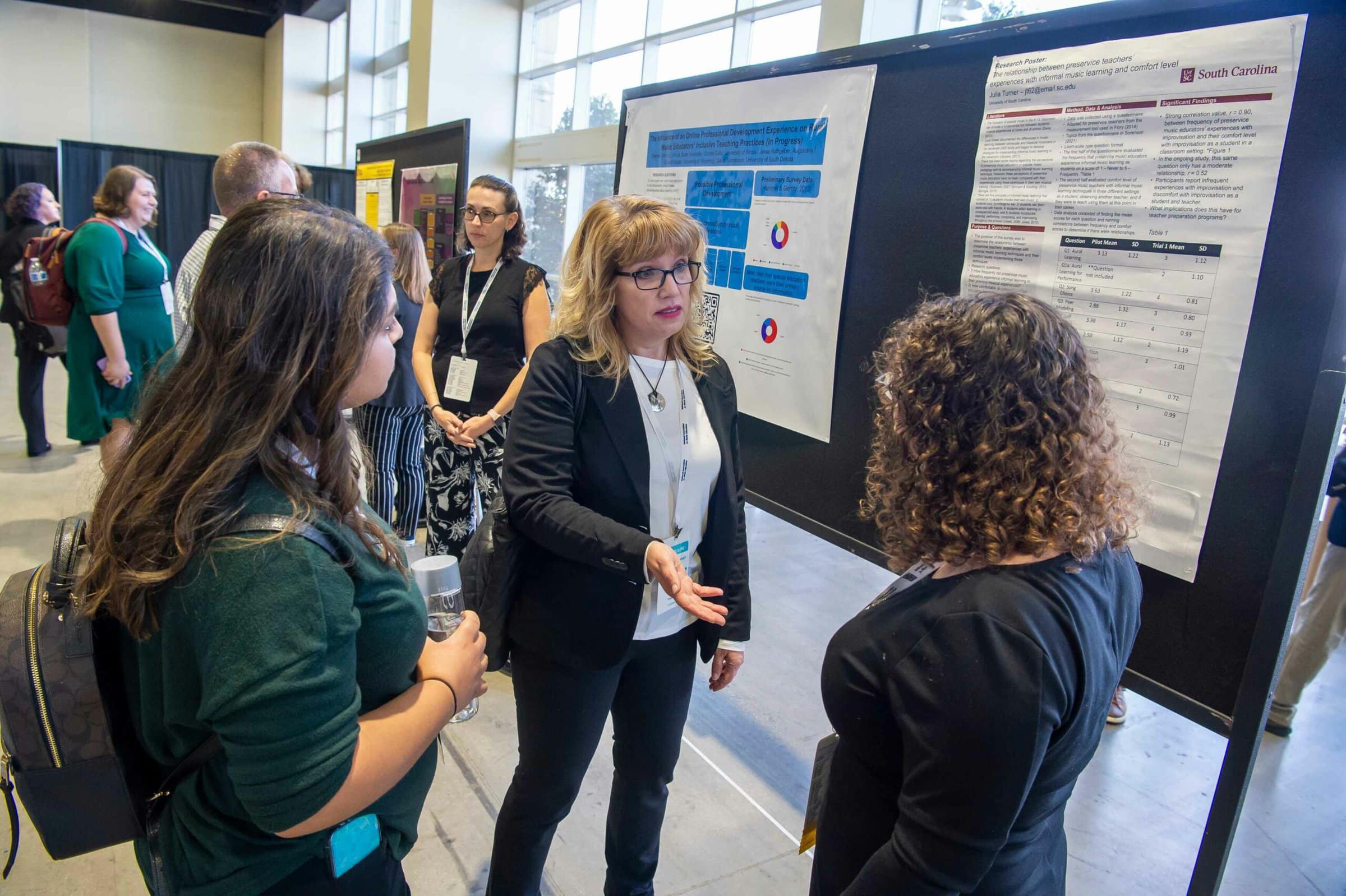Featured Resources
Fact sheets, guides, webinars, talking points, reports and more to equip music educators with the tools you need to succeed in the classroom and to help advance the profession.
NAfME offers an extensive resource library to help educators teach music and advocate for music programs.
Innovations in Music Education Podcast: Episode 1 with Andrew Thompson
Episode Description: Episode 1 with Andrew Thompson: Dr. Shane Colquhoun and Brett Barker sit down with Andrew Thompson, who shares insights about his unique music program at Aloha High School.…
Two Documentary Films and Lesson Plans: Dr. Eddie Henderson: Uncommon Genius and Awadagin Pratt: Black in America
Access Two Documentary Films and Lesson Plans: Dr. Eddie Henderson: Uncommon Genius and Awadagin Pratt: Black in America NAfME is very pleased to be able to provide access for music…
2024 Jazz Appreciation Month Interview Series: Roosevelt Griffin
In this interview, Roosevelt Griffin III discusses how to get young students comfortable with improvising. Founder of the Griffin Institute of Performing Arts NFP, Roosevelt holds the Dyett Chair for…
2024 Jazz Appreciation Month Interview Series: Lisa Linde
In this interview with NAfME’s Council for Jazz Education Chair Bethany Robinson, Lisa Linde discusses how she’s continued to build a culture of inclusion and excellence even amidst administrative scheduling…
2024 Jazz Appreciation Month Interview Series: Jeremy Lumpkin
Jeremy Lumpkin is the band director at Hillgrove High School near Atlanta, Georgia, where in just a few short years the jazz program received an invitation to perform at the…
2024 Jazz Appreciation Month Interview Series: Sammy Miller
NAfME Chair of the Council for Jazz Education Bethany Robinson talks with performer Sammy Miller about his experiences working with students through the Jazz at Lincoln Center program and his…
Federal Policy Changes in 2025: What Music Educators Need to Know
This webinar features the NAfME Advocacy and Public Policy team and explores how recent executive orders and administration actions, funding decisions, and other policy priorities could impact your program and…
INSPIRE Music Curriculum: Creative Music and Composition Projects for K-12 Teachers and Students
Welcome to National Association for Music Education (NAfME) Composition Council Music In Our Schools Month® 2025 creating and composition publication for educators working with K-12 and tertiary students! We have…




